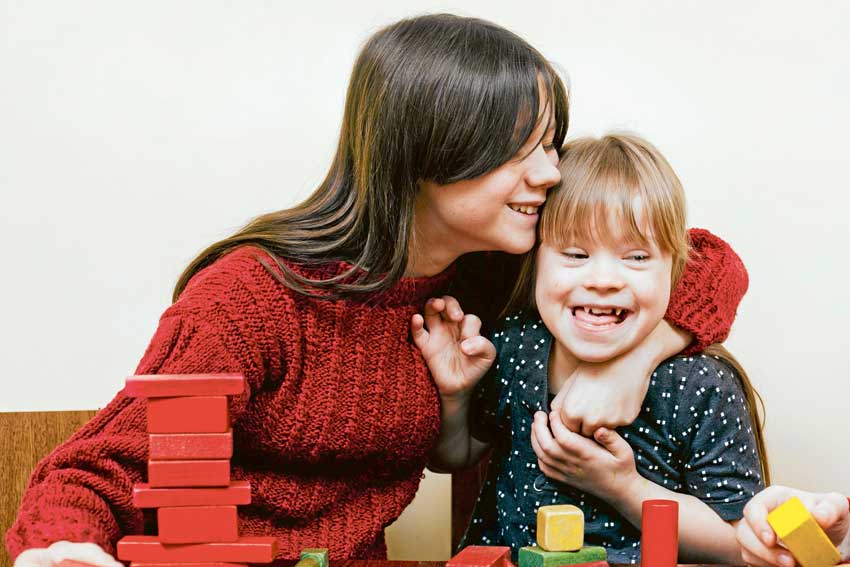
People with intellectual disabilites struggle to access quality healthcare
Margot Elliffe a registered nurse and midwife, was told by a GP that her sick two a-half month old baby Tara should not have been born because she had Down syndrome.
“It was a doctor I didn’t know. I sat with her in my arms,” Ms Elliffe said. “And when he said, you know, ‘You shouldn’t have had her,’ I just shook my head and waited until he had written the prescription and I left.
“I didn’t say anything. I didn’t argue with him. It puts you back into that closed-down state, but I went home and cried.”
Ms Elliffe told her story to the Royal Commission into Violence, Abuse, Neglect and Exploitation of People with Disability in Sydney on 28 February. A week earlier her daughter Tara Elliffe, now 30, fronted the Commission to speak about an experience while in hospital needing surgery.
“My stomach was in so much pain,” Ms Elliffe read from her written statement. “It was like a jackhammer was in my stomach. “The big doctor came in to tell me that I was ready to go home. He didn’t look at me at all. He just looked at my dad and said, ‘What’s her problem?’”
A member of the advisory board of Down Syndrome New South Wales, Ms Elliffe said that how other people treat her “can be hurtful at times”.
Attitude of disrespect evident crosses ‘many sectors’
Their stories belong to the many emerging from the Commission of the chronic lack of adequate staffing and resources within the health sector and in other areas to help families and individuals affected by disability, as well as an underlying attitude of disrespect throughout the community particularly towards people with intellectual disability.
Margot Elliffe spoke of the immense pressure for pregnant women to receive prenatal testing to screen out conditions such as Down syndrome.
“Once you are assessed as high risk, and I even find that language offensive, you are automatically expected to terminate,” she said.
Robert Strike AM, co-founder of Self Advocacy Sydney, spoke of the problems people with intellectual disabilities such as himself and his daughter face when trying to communicate their needs to doctors and other health professionals.
“If you have someone listening to you and understanding what you’re saying that’s the most important thing for a person with disability.”
“Some don’t talk directly at you, they talk over you and that makes it hard for the person to understand what you’re saying,” Mr Strike said. “If you have someone listening to you and understanding what you’re saying that’s the most important thing for a person with disability.”
He called for policies affecting people with a disability to be informed by the people themselves.
Professor Thill, who is the dean of the School of Arts and Sciences at the University of Notre Dame, Sydney and a disability researcher, said that a culture of disrespect towards people with disability is evident across many sectors, not only the health sector.
“Across so many sectors we see disability being viewed as kind of a personal tragedy rather than people with a disability being recognised as rights holders,” she said.
“Across so many sectors we see disability being viewed as kind of a personal tragedy rather than people with a disability being recognised as rights holders.”
“For people with intellectual disability there are significant attitudinal barriers. Despite the convention on the rights with people with disability placing an emphasis on supported decision making Australia still allows for substituted decision making. A guardian can make a decision on someone’s behalf and it’s quite a black and white distinction.
“There is not a culture and there’s not enough policy around deported decision-making that would support people with intellectual disability to make decisions about their own health as much as possible.”
Professor Thill welcomed the Royal Commission as it will provide important information about the scale and type of violence occurring against people with disabilities.
“Violence tends to be treated as a service incident or critical incident, often by service providers,” she said. “That doesn’t mean it’s not taken seriously, but it’s not recognised as violence.
“Another problem is that people with disabilities are viewed as witnesses rather than as people with expertise gained from their lived experience that can actually give us some insight into the kinds of systemic changes which are needed.”
Particularly vulnerable are people with complex needs including people with a disability who are also older, Aboriginal or Torres Strait Islander, or people with an intellectual disability, Professor Thill said.
Related articles:
The hope of all students at Eileen O’Connor
Woman with Down syndrome fights abortion laws
